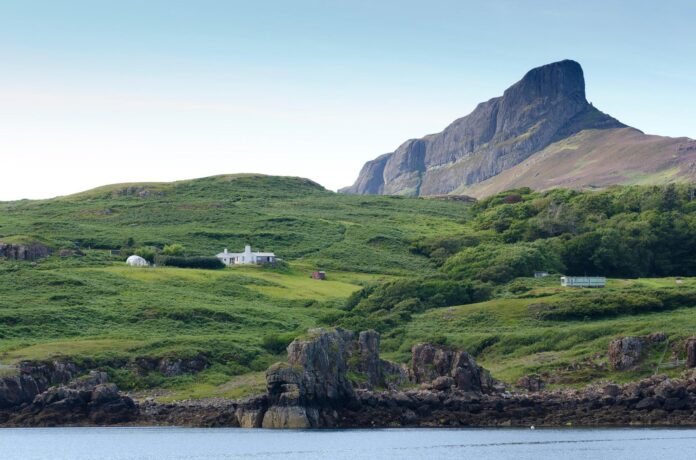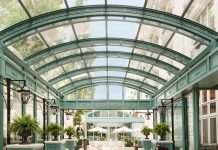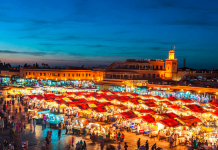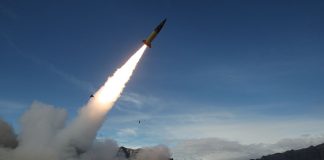Peter Irvine, who has been writing his Scotland the Best travel guides for nearly 30 years, suggested islanders should have greater control over visitor numbers, caravans and campervans, and self-catering accommodation.
Irvine, who spent last summer travelling around Scotland’s islands for a new book, said the growth of the industry was being hampered by a lack of suitable accommodation for staff and an exodus of workers due to Brexit.
Sign up to our daily newsletter
The i newsletter cut through the noise
He called for dedicated housing to be provided for hospitality and tourism businesses to allow them to expand and develop.
Irvine highlighted huge improvements made by businesses on Arran, Mull, Islay and Skye in recent years.
And he cited Eigg, Coll and Tiree as examples of islands where sustainable tourism was being embraced.
However he said great care had to be taken to ensure islands did not become over-run with visitors.
Interviewed ahead of the launch of Scotland The Best The Islands this week, Irvine said: “The islands are very different from the mainland.
The Isle of Eigg. Picture: Allan Wright
“They’re all there to discover and they’re all relatively quiet. There’s no real urban development to get in your way of enjoyment and they offer an outdoorsy experience. They’re still a pleasure even if it’s windy or rainy.
“You can fall in love with islands like Arran or Mull after just a few days, feel like you really know them, and come back again and again. They both have a really good range of places to eat now.
“I stayed with my family at Auchrannie (resort) on Arran for this book, which is an example of a really great, well-managed island hotel. The great outdoors are all around you there.
“The Machrie Hotel on Islay is probably the latest island development to recreate a hotel to a much higher standard. It’s of an international standard now, but has retained a real friendliness in its service.
The Isle of Coll. Picture: Ross Evans
“But you do tend to have to book well ahead to go to the islands.
“That pretty much applies to accommodation everywhere and also includes camping and campervans now.
“It’s increasingly not as easy as it was to do that and some people would say rightly so, as they can take so much room on ferries.”
Irvine highlighted the extensive efforts made on Tiree to limit the number of campervans coming onto the island, which recently set up a holiday lettings website to take on Airbnb and ensure more money generated by the industry stays local and profits from the commission-based structure are reinvested in small businesses, community and housing projects.
The old bridge at Sligachan on the Isle of Skye: Paul Tomkins
Also singled out for praise in his new book are the “uniquely green agenda” on Eigg, where the islanders effectively secured their independence in 1997, and the Coll Hotel, which he hailed as being “in a world of its own”.
Irvine said: “Island communities in places like Coll, Tiree, Gigha, Raasay, Colonsay and Eigg are becoming more and more organised. It’s their life and work and they are very careful about how they do things.
“They are making sure visitors are welcome and are catering for their needs, but things are being kept in proportion, which is absolutely essential for small islands.
“The great thing about islands is that the number of people going there is controlled by an extent by the ferry service.
“I think island communities and the people who love the islands and go there often want to see a bit more control, so that people would actually have to book a place for a campervan rather than just park up on a beach.
“It’s way overdue that things like Airbnb were brought under control. It’s about getting a balance everywhere.
The Isle of Tiree. Picture: Mike Rennie
“The locals should not have to fill in the gaps in infrastructure. By definition, they live and work there.
“A lot of them work in industries linked to tourism on the islands, however there does have to be a balance.
“In all of the islands, you’re reminded about that every time you go to them. You don’t want your coastal walk to be full of people. You want to be able to get into a restaurant.”
Irvine said the development of the tourism and hospitality sectors on Skye over the last 30 years had seen it become the “second big destination” to visit in Scotland after Edinburgh.
But he suggested other parts of the islands would struggle to develop unless more housing for local workers could be created.
He said: “It all started on Skye with The Three Chimneys and Kinloch Lodge, which have both been there for a long time.
“Skye has had a huge proliferation of quality places to stay and eat over the last 10 years.
“The Sligachan Hotel, for example, has done remarkably well to offer something for everybody now.
“But all rural hotels have had a problem with staffing now.
“Last summer there were several places that just couldn’t serve meals because they didn’t have enough staff.
“There are real challenges out there for people even if they have really successful operations.
“The impact of Brexit is really limiting their future development and viability. A lot of people who previously came to work in Scotland just aren’t here anymore.”
Irvine suggested the tourism industry would increasingly have to collaborate with landowners and communities to agree to dedicated housing being created for people working in local businesses.
He added: “Businesses are having to think very carefully about how to expand and where their staff are going to stay.
“If you expand a hotel or another development you need more people and they need to stay somewhere.
“Conscientious operators want their staff to stay somewhere that isn’t just cheap accommodation. That’s really the only way they will be able to keep people or get them to come back for the next season.”
Brodick Bay on the Isle of Arran. Picture: Andy SurridgeThe Calmac ferry between Berneray and Harris. Picture: John MaherCampervans on the Isle of Harris. Picture: John MaherScotland The Best The Islands by Peter Irvine. Picture: Jim Richardson













